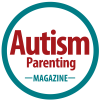-
About
- About Listly
- Community & Support
- Howto
- Chrome Extension
- Bookmarklet
- WordPress Plugin
- Listly Premium
- Privacy
- Terms
- DMCA Copyright
- © 2010-2025 Boomy Labs

Listly by Autism Parenting Magazine
For many children with autism, communication issues are one of the first telltale signs of autism spectrum disorder (ASD). As autism covers a spectrum of challenges, children can present communication issues differently from one another.
Download our FREE guide at:
https://www.autismparentingmagazine.com/assistive-technology-autism/
Source: https://www.autismparentingmagazine.com/assistive-technology-autism/

For many children with autism, communication issues are one of the first telltale signs of autism spectrum disorder (ASD). As autism covers a spectrum of challenges, children can present communication issues differently from one another. Some children might have a large vocabulary and learn to read at a young age but struggle to contextualize what they have read or answer who, what, where, when, why, and how questions.

Every parent has experienced the embarrassment, frustration, and exhaustion of a child’s temper tantrum. It doesn’t matter what is the diagnosis or developmental stage—and it happens to both the novice and most experienced parents. Inevitably, if you have a child, you will find yourself trying to manage behavioral outbursts.

Able2learn is working to help struggling parents, teachers and schools – faced with limited budgets – educate children with autism.

Although the Individuals with Disabilities Education Act (IDEA) of 1997 requires assistive technology (including communication devices) be considered for every child with a disability during Individualized Education Program (IEP) planning, it seems as though there is a specific population that tends to be overlooked…the high school-aged child.

For thirteen years I single-parented my son, Thomas, who was diagnosed with Asperger’s syndrome when he was four. Now Thomas is a 21-year-old college student. As I look back on our journey together, I can’t help but realize the progress we’ve made. Single parenting a special needs child was difficult at times. I discovered that having a child with an Autism Spectrum Disorder (ASD), my decision to divorce became substantially more complex.

Great strides have been made in the past few years towards embracing the inherent challenges and discoveries made about the different degrees of autism.

If you are the parent of a teenager with autism you may have already begun to think about what adulthood will bring for your child with respect to viable living options, access to necessary services and social opportunities. If you are the parent of a “high-functioning” teen, you may allow yourself to picture a future in which your adult child is employed. Maybe you have read some of the recent well-publicized stories of major corporations benefitting from the loyalty, attention to detail and punctuality exhibited by many employees with Asperger’s syndrome. If, like me, you are the parent of a “low-functioning” non-verbal, stimming adolescent, you are not often encouraged to consider a future of meaningful and satisfying employment.

Someone asked me, “If the Autism Speaks Organization isn’t something you support then what organizations or schools do you support?”

The new school year can be a source of stress for many children and even more so for children with autism. There are new people to meet, new routines to learn, and all the while having to navigate this real-world environment we call school. Communicating with your child’s teacher is critical to your child’s success. After all, you do know your child better than anyone. You can be a tremendous resource that can help ensure your child has a smooth transition into a new classroom with a new teacher. Here are some tips to help facilitate good communication between you and your child’s teacher:

Product: Unlike anything else on the market, the Indi speech tablet from Tobii Dynavox is designed specifically for augmentative and alternative communication (AAC), and it is ideal for symbol-based communicators of all ages with speech and language disabilities, including individuals with autism, Down syndrome, cerebral palsy, aphasia, and intellectual disabilities.
